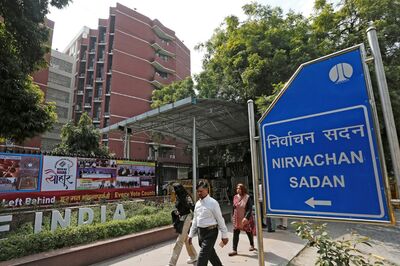
views
An..
MYSORE: The findings of a team of archaeologists throw some new light on the skulls and bones found in the Dharwad region.
Analysing the way of the disposal of the dead, the condition of the
skeletal remains and their stratigraphical details, the team in its
report on Archaeological Excavation at Annigeri, to be submitted to the
government soon, has concluded they were the remains of those who died
during Davgi-bara (Skull Famine) of 1789-92.
The report is being prepared by the team comprising Dr M S Krishna
Murthy, Professor Emeritus (Archaeology), University of Mysore, Dr R
Gopal, Director of Archaeology and Museums, and T S Gangadhara,
Assistant Director of Archaeology and Museums.
The huge number of skulls — about 600 — makes this the largest single
human burial in India or elsewhere, said the team, which started
excavation works on January 12. Quoting experts’ opinion, sources told
Express: “It is the rarest of the burials executed for the victims of a
natural calamity. It was a community burial. All other theories, like
large-scale massacre of traitors, slaughter of prisoners of war and
religious homicide, cannot be validated.”
The experts also dispelled the theory that it was a collection of
remains made by occult practitioners of Vamachara (witchcraft).
The experts said one ghastly natural calamity that happened in the
Deccan in particular, and south India in general — and well-recorded in
the history of the region — was the severe famine of 1789-92. This
famine is remembered even now in folklore as ‘bones lay unburied,
whitening roads and fields. The ground was covered with skulls of the
unburied’. About eleven million people are estimated to have died during
1789-92 due to starvation and epidemics.




















Comments
0 comment